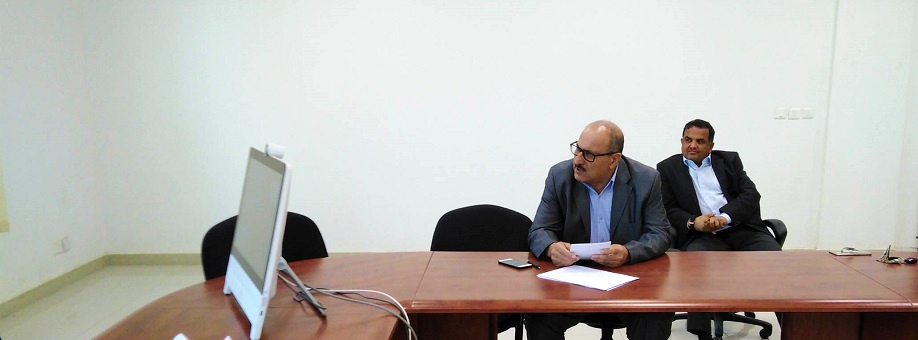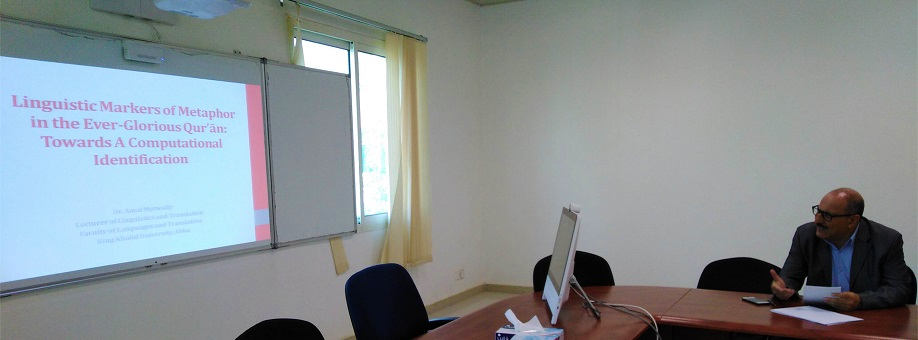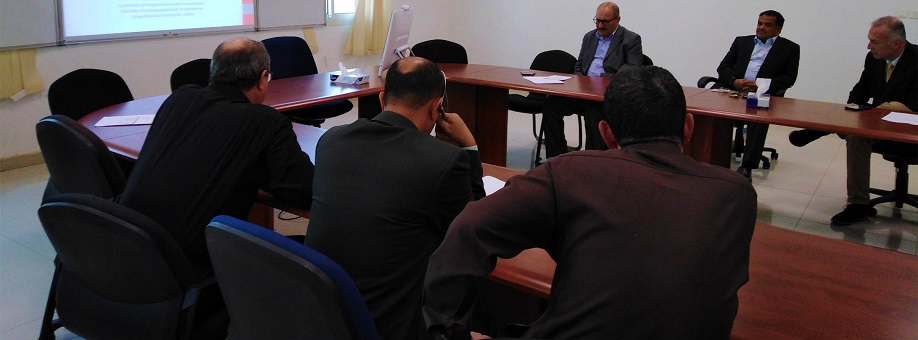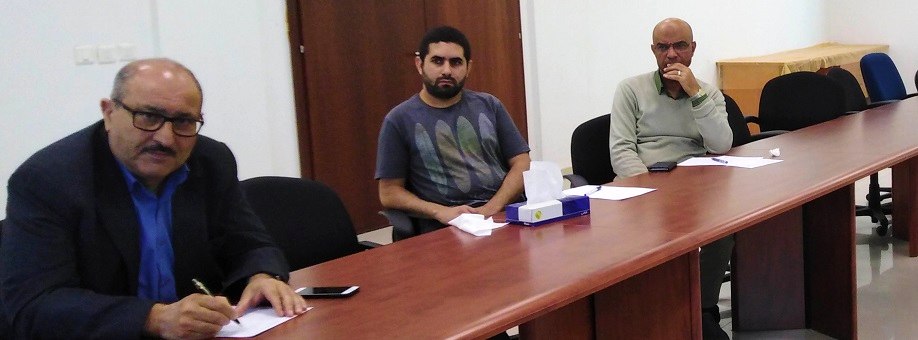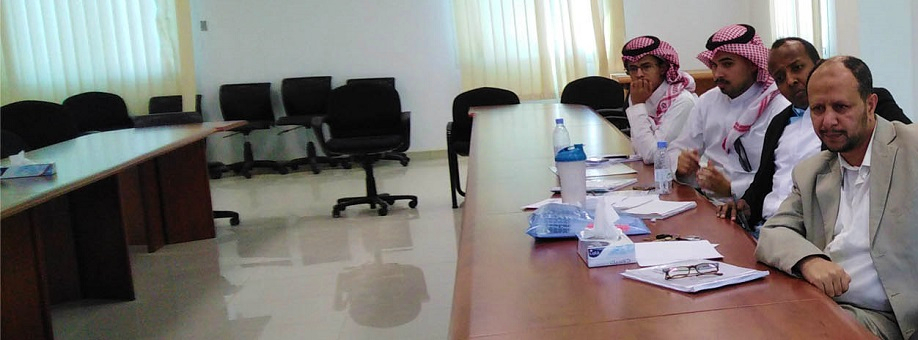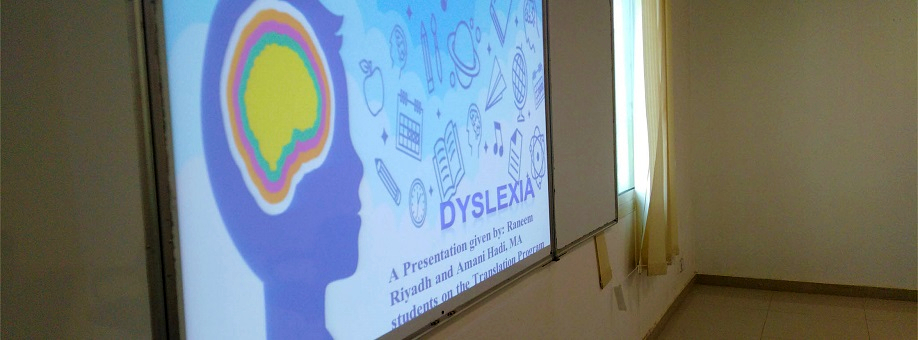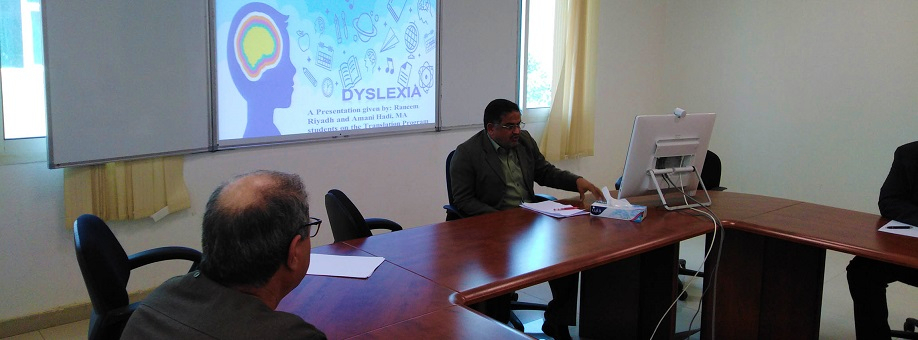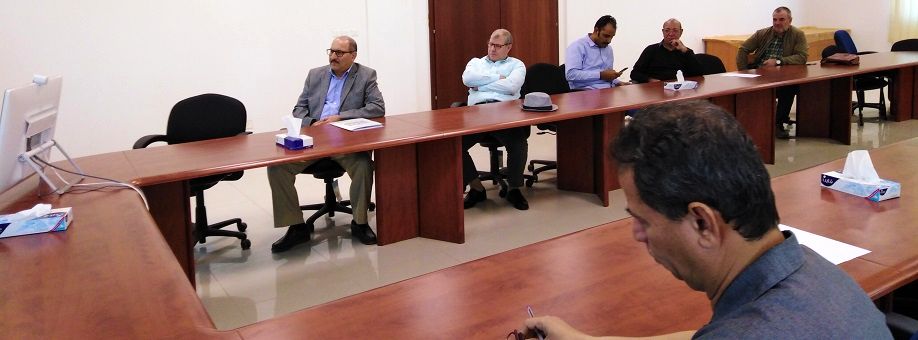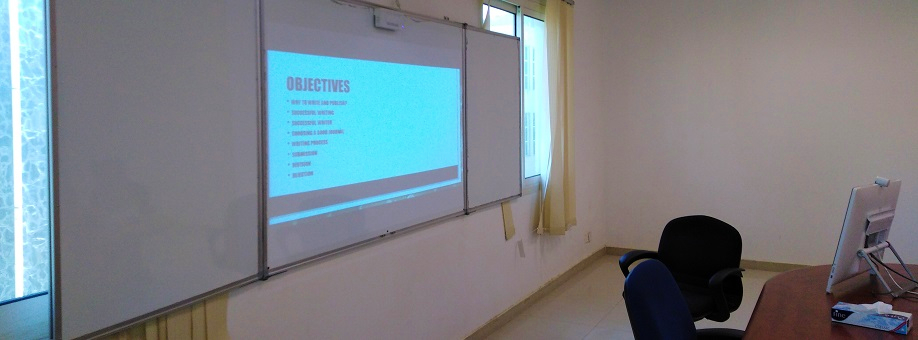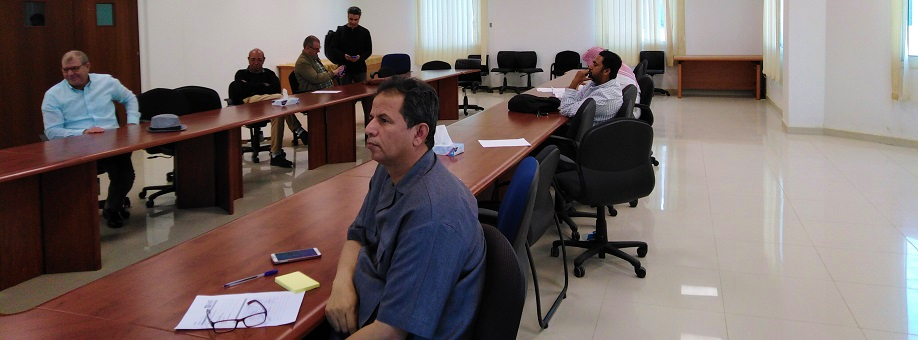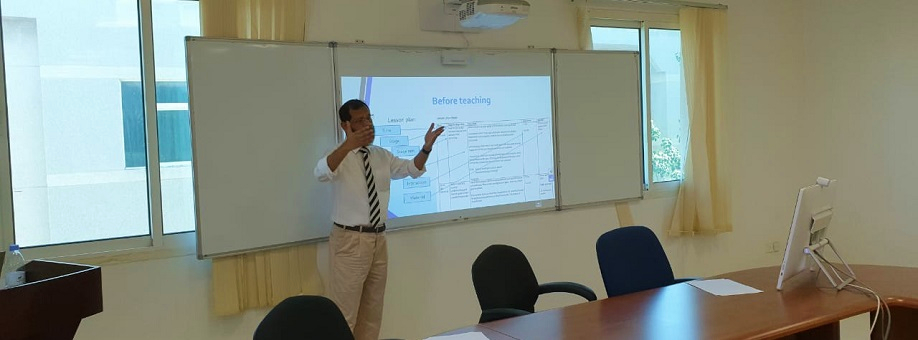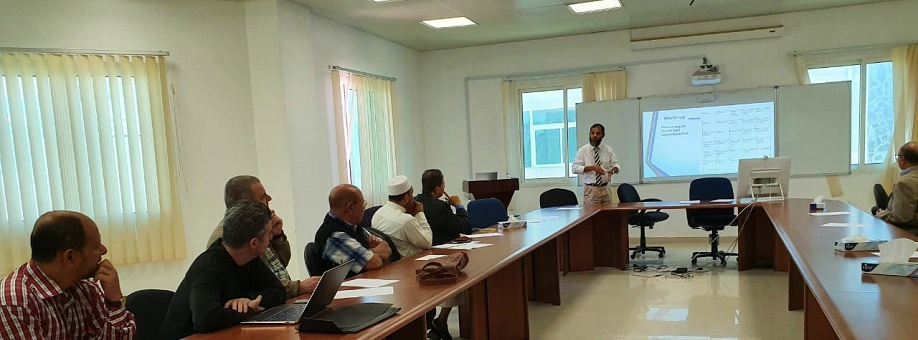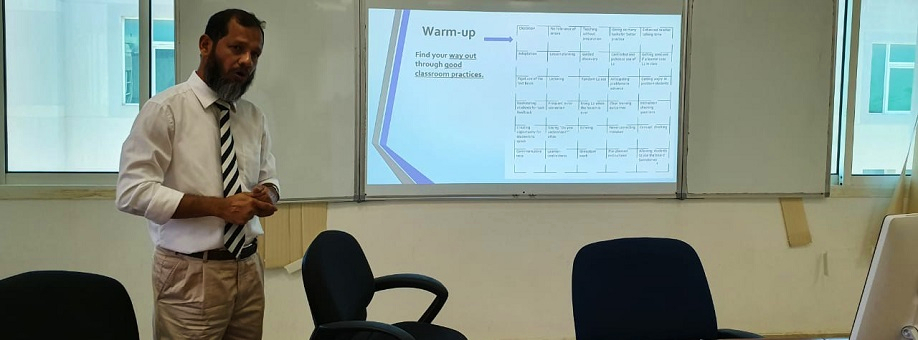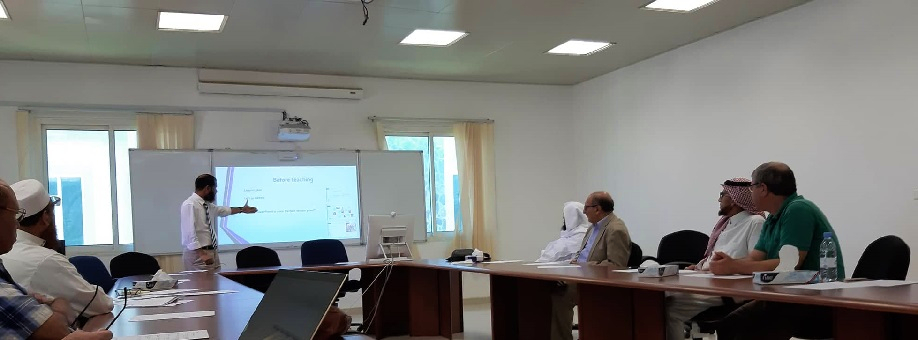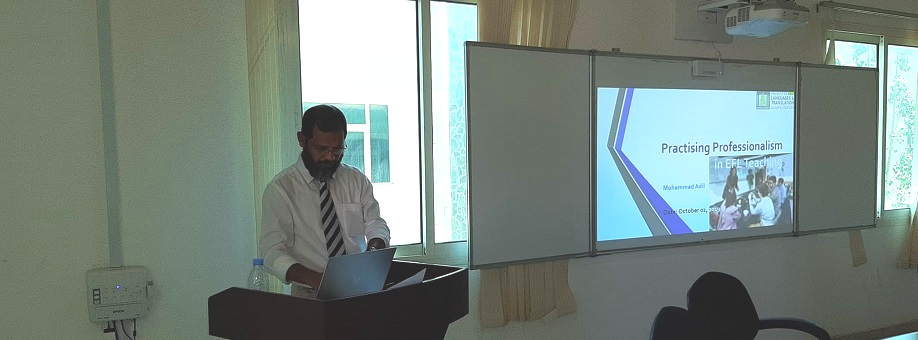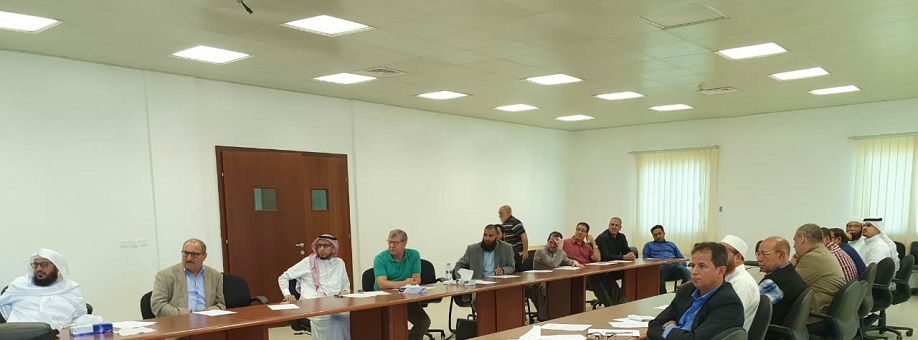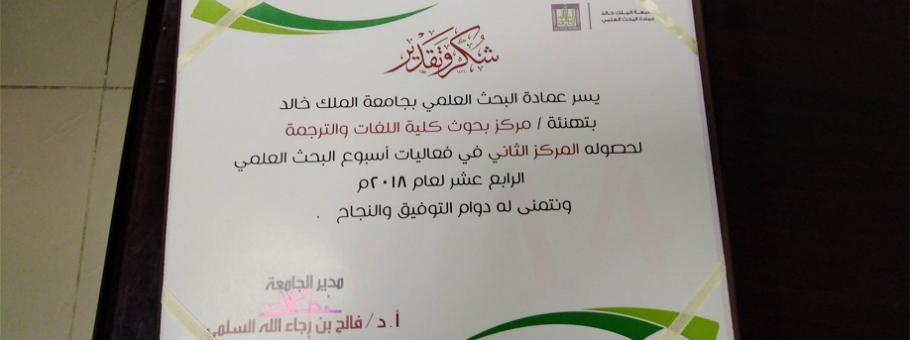Linguistic Markers of Metaphor in the Ever-Glorious Qur'ān Towards a Computational Identification
Dr. Amal Metwally delivered a presentation titled 'Linguistic Markers of Metaphor in the Ever-Glorious Qur'ān towards a Computational Identification' that was based on her Ph.D. thesis at a seminar organized by the Language Research Center on November 20, 2019.
Her study, she said, attempted to establish the appropriate criteria for the computational identification of metaphors, and propose computer software for identifying metaphor candidates in the Ever-Glorious Qur'ān. The study was based on Lakoff and Johnson's (1980) cognitive theory of metaphor, Goatly's (1997) research on metaphor in the Qur'ān, and computational studies of metaphor in general. It also focused on the early research by Arab rhetoricians and grammarians on metaphor.
Dr. Metwally's study explored linguistic markers of metaphorical candidates and identified linguistic markers of lexical items that were likely to be metaphorical. It also explored the use of such markers to create a computer application that could identify metaphors in the Ever-Glorious Qur'ān in the selected Sūrahs (Sūrat Hūd, Sūrat Yūsuf, and Sūrat Ar-Rā'd). She then explained in detail the corpus used, the methodology adopted in her study, and the overall structure of her research. Dr. Metwally then explained the cognitive theory of conceptual metaphor and computational linguistics.
Dr. Metwally's study concluded that it represented a novel direction for computational linguistics research on metaphor. Computer software for processing an entire corpus (selected Sūrahs from the Ever-Glorious Qur'ān) that could yield a list of potential metaphors would thus seem to be a welcome addition to the set of tools currently available to metaphor analysts.
The seminar was very interactive and a notable success. It is worth mentioning that Al-Samer Women’s College and the main campus for the Bachelor of Arts in English program also attended the seminar via teleconference.
Date: 11/21/2019
Source: Mohammad Adil Siddique

